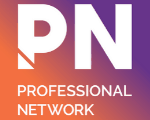Have a Message in Your Speech
There are different types of speech, but all must have the most important element: the message. There is no communication without a message, and that is vital to have a message in your speech. Below are some tips on how to identify, prepare and present your message:
What is your Message?
When giving a presentation, ask yourself what information you want the audience to go away with. What message are you trying to convey? Do you have a powerful message to get across? The first step of coming up with a speech is to choose a single, focused and concise message.
Single Message
To find your single key message, you can start writing down a few possible messages. This process can help in identifying the key message. Selecting only a single key message avoids the mistake of making a speech too complex and difficult to follow. You should keep in mind that people will not remember everything you have said and will only remember a few key elements which is why you need stick to a single message.
Clear, Concise and Simple Message
Write down your message one sentence. Try to use simple concrete words and avoid any abstract words or jargon. Could you say your message to an eight year old child and they would understand? If not, keep working on your message to make it even clearer and simpler.
Keep your Audience in Mind
Knowing the audience helps the speaker choose their words and approach for optimal results. Your message needs to speak to your audience. They need to be able to relate to what you are telling them, and they could be able to use it in their everyday lives. Make your message easy to understand for your audience.
Word Choice
Select words in your speech that support your message. Some words can influence your presentation if they support your chosen message. For example, the word choice for a speech at a wedding should be jovial while those used when at a funeral should be comforting.
Come up with Supporting Points
For a speech to deliver the intended effect, the central message should be supported with some evidence. Listeners will understand your message more if it has some supporting evidence. For example, if your speech is about a single product, you can give several supporting ideas like some reasons why one should choose that product. You can later go through your list and eliminate the ones that are not strong enough to support your main point.
Come up with Supporting Stories
Another powerful tool is to weave stories into your speech. Telling stories or anecdotes that support your message will help the audience emotionally connect to your message. Stories have been used for centuries by preachers, priest and politicians alike to convey their messages. And this is for a very simple reason. People don’t want to be taught a lesson, however they do like to be entertained and hear a good story. In addition, people are more likely to remember a good story, and then in turn they will remember your message.
Summary
Ensure that your speech has a single, simple, clear message that is memorable and make it relevant for your audience.




